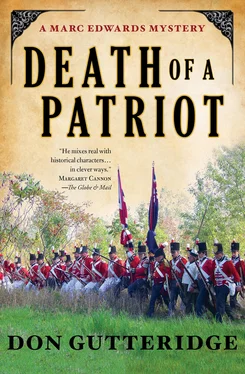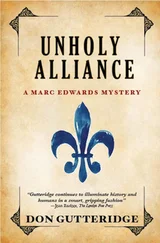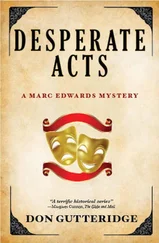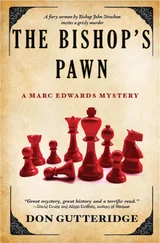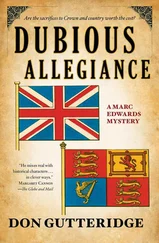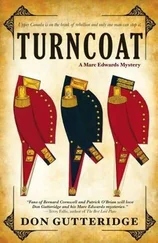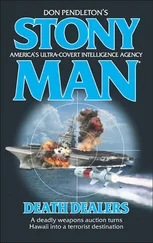Don Gutteridge - Death of a Patriot
Здесь есть возможность читать онлайн «Don Gutteridge - Death of a Patriot» весь текст электронной книги совершенно бесплатно (целиком полную версию без сокращений). В некоторых случаях можно слушать аудио, скачать через торрент в формате fb2 и присутствует краткое содержание. Год выпуска: 0101, Издательство: Touchstone, Жанр: Исторический детектив, на английском языке. Описание произведения, (предисловие) а так же отзывы посетителей доступны на портале библиотеки ЛибКат.
- Название:Death of a Patriot
- Автор:
- Издательство:Touchstone
- Жанр:
- Год:0101
- ISBN:нет данных
- Рейтинг книги:3 / 5. Голосов: 1
-
Избранное:Добавить в избранное
- Отзывы:
-
Ваша оценка:
- 60
- 1
- 2
- 3
- 4
- 5
Death of a Patriot: краткое содержание, описание и аннотация
Предлагаем к чтению аннотацию, описание, краткое содержание или предисловие (зависит от того, что написал сам автор книги «Death of a Patriot»). Если вы не нашли необходимую информацию о книге — напишите в комментариях, мы постараемся отыскать её.
Death of a Patriot — читать онлайн бесплатно полную книгу (весь текст) целиком
Ниже представлен текст книги, разбитый по страницам. Система сохранения места последней прочитанной страницы, позволяет с удобством читать онлайн бесплатно книгу «Death of a Patriot», без необходимости каждый раз заново искать на чём Вы остановились. Поставьте закладку, и сможете в любой момент перейти на страницу, на которой закончили чтение.
Интервал:
Закладка:
“Yet you would have us believe that, despite your creating a prison chamber in your own home right down to the nth detail and supervising the sentries front and back and vetting every visitor, you were unaware that a duel had been planned to take place in your garden with two pistols taken from your premises, a duel to be fought between your prisoner and the defendant?”
“I have answered that question already, sir, and I find your tone impertinent.”
“Did Mr. Bostwick have ready access to your pistols?”
“You’ve taken that line as far as it will reach,” the judge said to Dougherty. “Move on.”
Dougherty glanced down at the blank sheets on the lectern that comprised his notes, then said in a most pleasant tone, “You mentioned earlier in your casual chat with Mr. Thornton that you thought you saw Sergeant McNair stumble into the hall tree and get a hand improbably jammed in one of the coat pockets.”
“Did see,” Stanhope corrected.
“But according to the same testimony, that part of the hallway, no more than six feet across, I’m told, was crowded with screaming, jostling people: a police constable, two soldiers from outside, one maid descending in shock from the second floor, your wife and daughter from their sitting rooms, you and Chief Sturges and your butler, Absalom Shad-in addition to the man who occasioned the commotion.”
“That’s correct.”
“So, even if you are able to swear to what you believe you saw, it is conceivable that almost anyone present during those critical, hectic minutes could have surreptitiously placed the incriminating poison packet in any coat lying or hanging about?”
Stanhope was unruffled. “I can only tell you what I saw, sir.”
In Marc’s estimation, Dougherty had picked some tiny holes in the prosecution’s skein of events, but all in all, the colonel had held up well. So far.
“Let’s go back even further now. At the very beginning of your testimony, you told the jury that Sergeant McNair had been extremely upset at the tragic death of his lifelong friend, Corporal Melvin Curry.”
“Billy confided this to me shortly after the battle, as I said.”
“He confessed to you that he harboured animosity towards Major Coltrane, an enemy officer he had tracked down and captured?”
“I told him this was normal, and that it would fade away when he got home and well away from the battlefield. But the last time we spoke, in mid-December here in Toronto, he admitted that that had not happened.”
Why was Dougherty going back here? Marc wondered. You didn’t let a witness repeat damaging testimony and embellish it.
“Still, at the actual scene of battle, near the redoubt where Corporal Curry died and Coltrane was captured, Sergeant McNair had a perfect opportunity to let the wounded captive die, did he not?”
Thornton started to rise, but the Colonel, warming quickly to military palaver, forestalled him by saying, “That’s exactly what I told the lad at the time. He had already passed the crucial test. Alas, it turned out to be of little help.”
Thornton sat back down, smiling.
Dougherty may also have been smiling, but the perpetual flutter of his lips made it impossible to be sure. “Was not the principal source of the defendant’s continuing anger the fact that Major Coltrane arranged an ambush near the abandoned redoubt, during which his friend and several others died? An ambush he considered cowardly and unworthy of an enemy officer?”
At the word “continuing,” Thornton turned to his junior with a shrug of incredulity.
“That is so. Again, I did my best to dissuade him of such a view.”
“Was the ambush not aided and abetted by the enemy’s suddenly and unexpectedly discovering a cache of rifles and bullets in the earthen walls of the redoubt, crates of ordnance that you were responsible for leaving there despite orders to clear all of it out of the place a week before?”
Thornton leapt up so precipitately that he nearly cracked his skull on the lectern. “This is irrelevant and unprofessional!”
The judge looked sympathetic but said, “Well, Mr. Thornton, you allowed the topic to be introduced earlier, and it does go to motive. Mr. Dougherty, are you trying to show that your client may have felt some personal guilt over the failure of his unit to remove those crates of ammunition?”
“Yes, milord. I meant to imply only that a militia detail involving Sergeant McNair and his commanding officer had been the very one to have inadvertently left those rifles where they were subsequently used to decimate the unit a week later, and-”
“I wish to answer your insidious question, sir!” The colonel had almost climbed out of the witness-box. “Lieutenant Muttlebury was accused, posthumously, of incompetence in the matter, but I accepted full responsibility for it. The lieutenant was cleared of any blame and I received a reprimand-along with a citation for courage under fire.”
Both the side galleries and the dignified benches reacted to this declaration with a chorus of muted “Hear, hear’s,” and for the first time the chief justice had to wield his gavel, albeit gently. Into the silence following the gavel’s appeal, Dougherty said to the witness, whose stamina and patience seemed inexhaustible, “Now, Mr. Stanhope, tell me about your daughter’s romance with the dashing major.”
Thornton was apoplectic and the witness stunned, along with most of the gallery. “This is an outrage, milord!”
“How dare you-”
“Please, restrain yourself, Colonel Stanhope,” the judge said quickly, “and I would not go so far as to label the question an outrage, Mr. Thornton. However, Mr. Dougherty, you had better have an explanation for it. We do not tolerate cheap theatrics or the abuse of witnesses in the Queen’s courtrooms, whatever the policy may be in your own republic.”
The great advantage that Doubtful Dick had, despite his near immobility, was that his deep-set, piggish eyes were almost impossible to read and thus disconcerting to anyone trying to do so. “I wish to explore a possible motive that someone other than the defendant may have had for murdering Coltrane, someone who also had opportunity and means,” he said serenely to the judge.
“Milord!”
“Are you referring to this witness, Mr. Dougherty?”
“I am. Mr. Stanhope has already provided testimony on how he arranged for the victim’s incarceration and how he scheduled and vetted all visitors. A key part of that testimony has been omitted, and I wish to ask the witness about that-with a view to constructing a competing theory of the crime.”
“You have every right to attempt such a tactic, sir, but I must caution you that Colonel Stanhope is not on trial here, and your questions must address facts already in evidence or questions directly relevant to those facts. If you digress one degree, I’ll stop you and dismiss the witness without right of recall.”
“I understand, milord.” The huge head with the perilously perched wig eased back to Stanhope, who was still fuming and glowering. “Your daughter was a regular visitor to Mr. Coltrane, was she not?”
“She was. She took him his breakfast every morning.” Stanhope bit off each word, and his scowl was venomous enough to poison a dozen defense counsel.
“At whose request?”
“Initially mine, when the maid took sick. Then Major Coltrane’s.”
“Did you at any time discuss with your wife or anyone else the growing possibility that Patricia, your daughter, might be romantically attracted to an officer in your enemy’s army?”
Stanhope grimaced in an effort to maintain his composure.
“Well, sir? You are under oath.”
“My wife mentioned it to me a few days before the major’s death. I gave it no credence. I told her that even if it were true, the man would be hanged and forever out of our lives within the month. Why should I be foolhardy enough to poison a man already destined to die?”
Читать дальшеИнтервал:
Закладка:
Похожие книги на «Death of a Patriot»
Представляем Вашему вниманию похожие книги на «Death of a Patriot» списком для выбора. Мы отобрали схожую по названию и смыслу литературу в надежде предоставить читателям больше вариантов отыскать новые, интересные, ещё непрочитанные произведения.
Обсуждение, отзывы о книге «Death of a Patriot» и просто собственные мнения читателей. Оставьте ваши комментарии, напишите, что Вы думаете о произведении, его смысле или главных героях. Укажите что конкретно понравилось, а что нет, и почему Вы так считаете.
